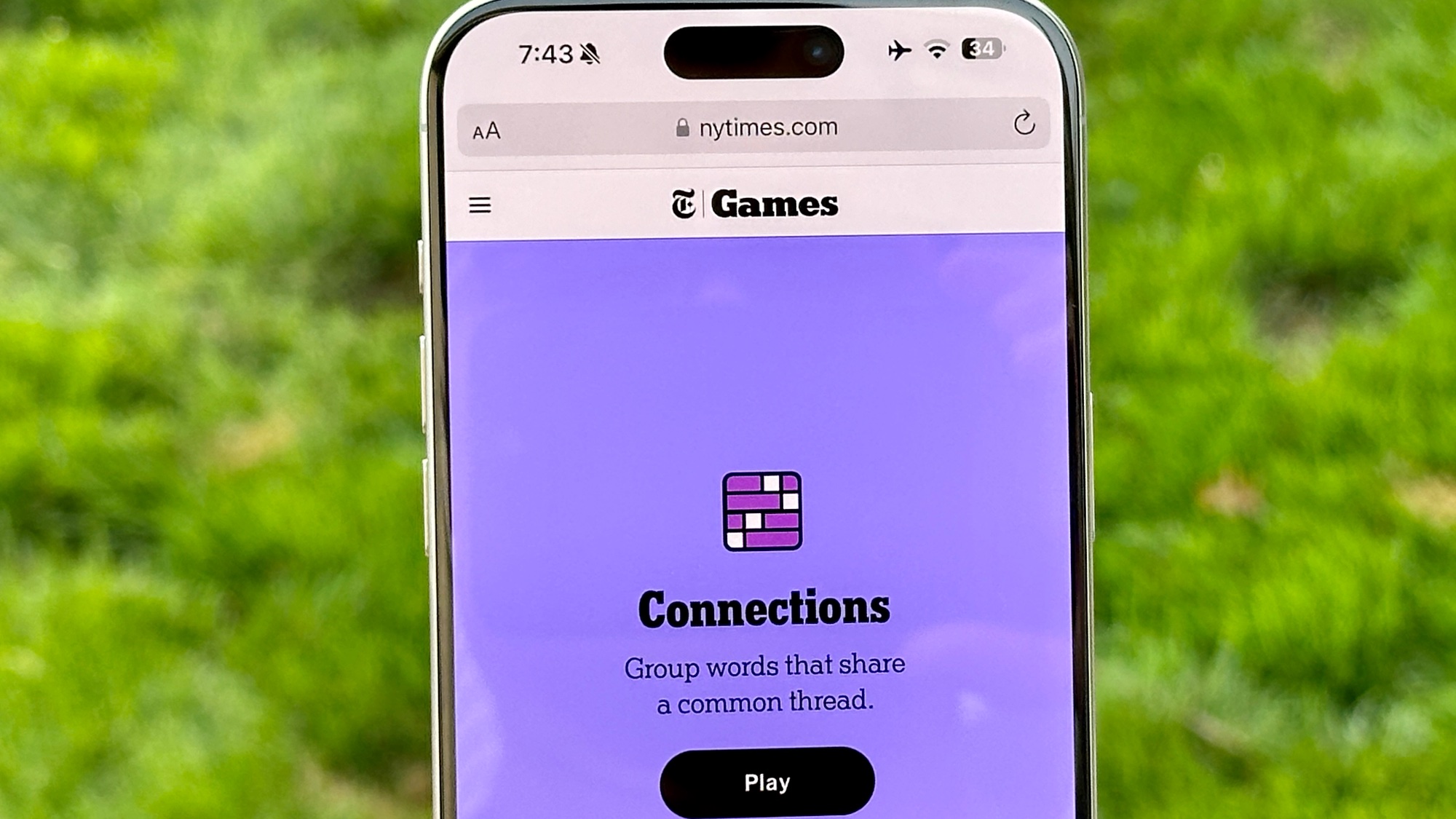iPhone 12 killer feature revealed — and it's bad news for Android phones
The A14 Bionic in the new iPad Air is the most powerful Apple chip ever, and it's coming to iPhone 12
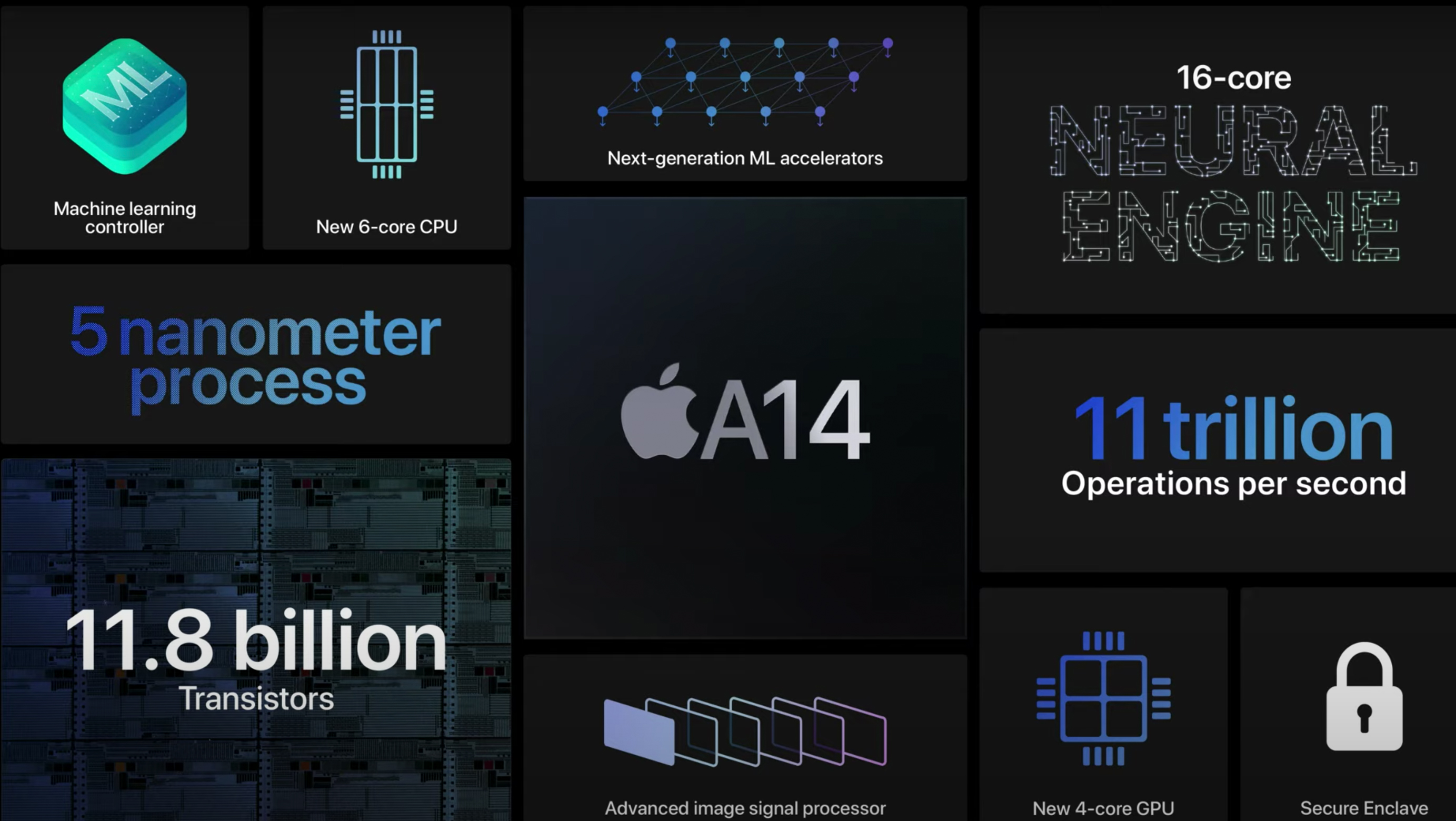
The iPad Air 4 just stole the thunder from the upcoming iPhone 12 by something no other Apple device has done in over nine years: get the latest generation of Apple-made processors before the iPhone.
Revealed at the Apple Event, the new iPad Air 4 features the new A14 Bionic chip, and Apple says it's the “most powerful chip ever made.” As the first 5-nanometer processor in a consumer device, the A14 Bionic is promising a serious hike in performance over the A13 Bionic found on the iPhone 11 and iPhone 11 Pro, as well as all Android phones.
But it's about more than just sheer horsepower.
- Everything we know about the new iPhone 12
- iPad 8 vs. iPad Air 4: How Apple's new tablets compare
- Just in: iPhone 12 mini just leaked — this is big
This move to the 5nm process node means Apple has squeezed 11.8 billion transistors into its new chip. That means the six-core CPU will deliver a 40% boost in performance over the A12 chip in the previous iPad Air. And a new four-core GPU will deliver a 30% hike in graphics performance.
The A13 Bionic already beats all of the best Android phones in terms or performance, including the new Galaxy Note 20 Ultra with Qualcomm's Snapdragon 865 Plus chip. And the A14 Bionic should only create more distance between Apple and the rest of the field.
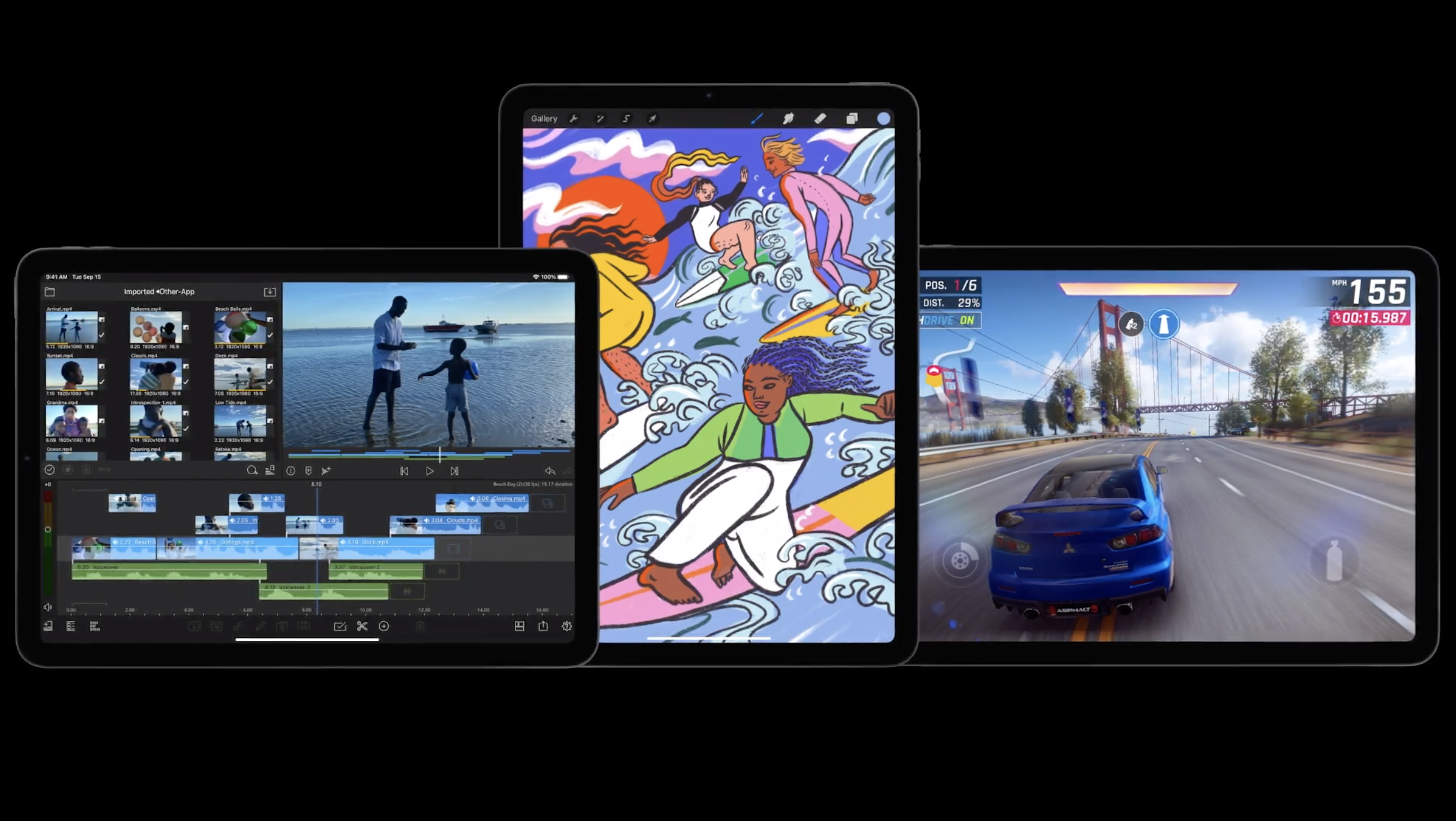
Numbers are all well and good, but they mean nothing in unless they result in noticeable real-world performance. Apple touted that the A14 Bionic will allow for games to be run at high resolution and fast frame rates, as well as handle 4K video editing and creating detail-heavy digital art in real-time.
One game developer showed off how their game War Robots will get a very noticeable boost in graphical fidelity when running on an A14 Bionic, complete with more dynamic shadows and more realistic reflection. And the game will run at 60 frames per second even with 6 on 6 multiplayer.
Sign up to get the BEST of Tom's Guide direct to your inbox.
Get instant access to breaking news, the hottest reviews, great deals and helpful tips.

The A14 Bionic is also a lot smarter than its predecessor as it has double the Neural Engine cores. That will allow it to handle 11 trillion operations per second and thus two times the machine learning performance of the A13 Bionic. This translates to smarter and faster AI-centric performance, which means Siri should get better at understanding natural language and image recognition is expected to get a boost.
Third-party apps will also benefit from the machine learning upgrade. For example, in a Pixelmator demo we saw how you can crop in very close on an image, and the ML Super Resolution feature will enhance the photo on the fly. It's all about building more intelligence directly into apps.
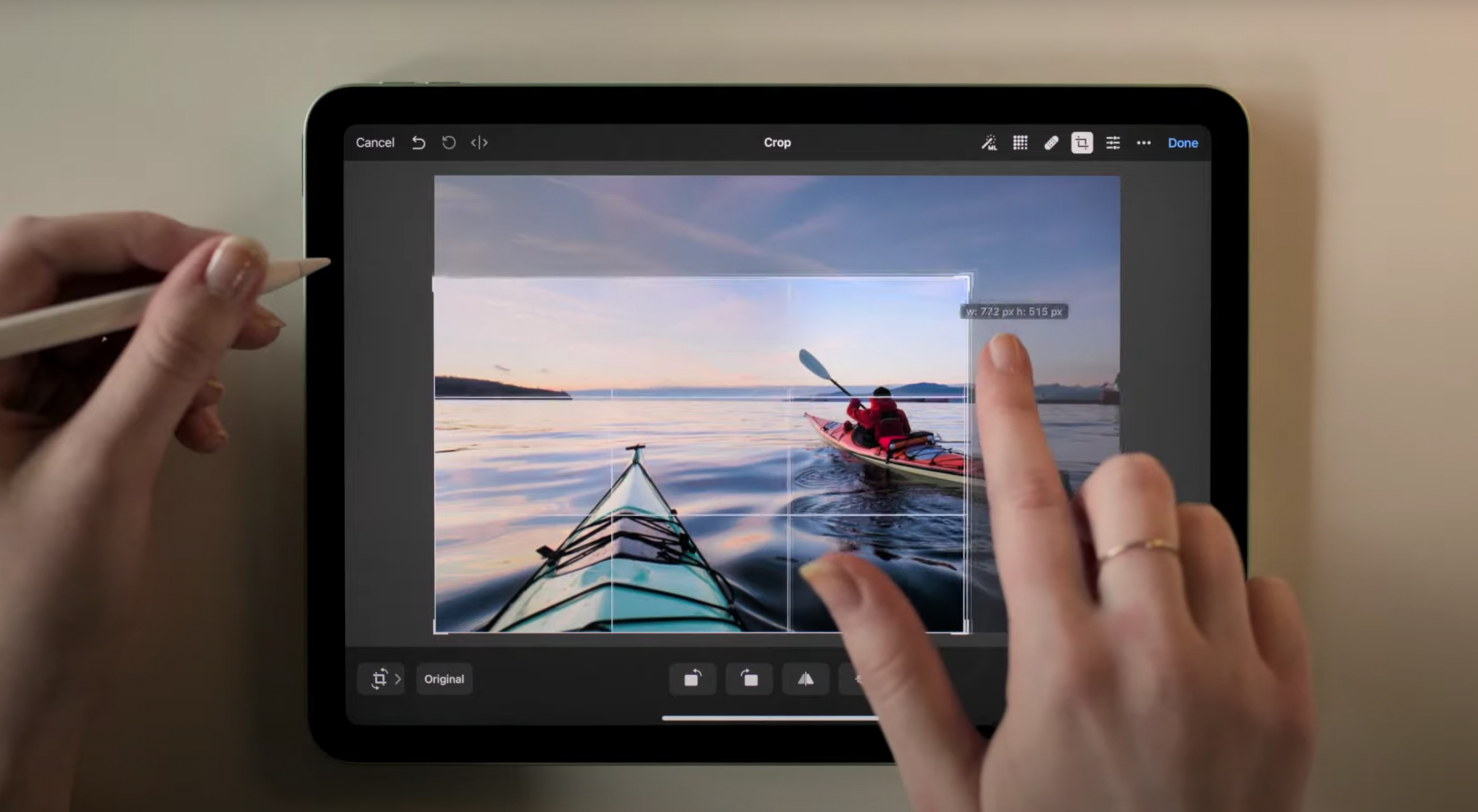
This is a critical distinction for the way Apple approaches making chips. It works with both Apple's hardware and software teams, as well as third-party developers to determine the types of experiences they want to deliver. It then custom designs its chips to bring these ambitions and new features to life.
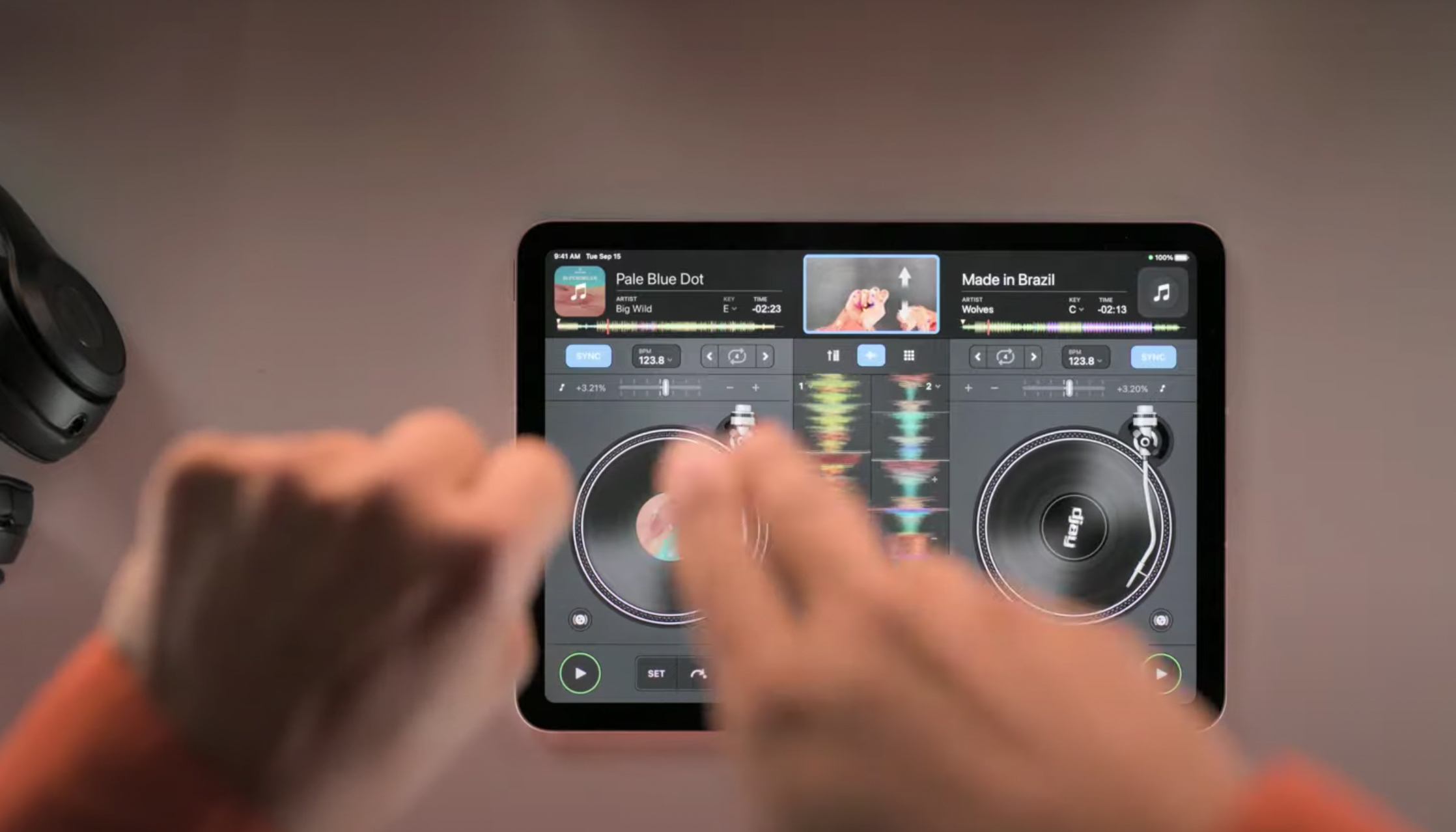
A key example of this is the Djay Pro 2 app, which enables users to seamlessly mix music in their collection and add or remove everything from the vocals to the drums without missing a beat. And they're adding new feature thanks to Apple's vision framework for the A14 Bionic that lets you scratch records just by waving your hands on the air.
Apple is also giving the A14 Bionic the “latest” image signal processor, which suggests that the photography capabilities of the iPhone 12 will get a boost. And the Secure Enclave has been tweaked to deliver a snappier Touch ID response, so we would expect a quicker Face ID for the iPhone 12.
Obviously, Apple showed off how all the A14 Bionic’s features will work in the iPad Air 4. But it’s all but confirmed that the iPhone 12 will have the A14 Bionic, which means all these capabilities will come to Apple’s quartet of next-generation phones, just in a smaller format.
In short, we’re expecting the A14 Bionic to allow the iPhone 12 to deliver a serious boost in performance over its predecessor and use machine learning to deliver better app experiences and better photography.
The Android competition is not sitting still, as the Samsung Galaxy S21 is expected to be the first to feature Qualcomm's new 5nm Snapdragon 765 chip. But it will be hard to catch up to Apple's integration of hardware, software and third-party apps.

Henry is a managing editor at Tom’s Guide covering streaming media, laptops and all things Apple, reviewing devices and services for the past seven years. Prior to joining Tom's Guide, he reviewed software and hardware for TechRadar Pro, and interviewed artists for Patek Philippe International Magazine. He's also covered the wild world of professional wrestling for Cageside Seats, interviewing athletes and other industry veterans.
-
thatgreekguy9 The iPhone 12 is such a bad news for Android phones that I'll change my Xiaomi Note 8T when it can't run Twitter or there is some problem in calls like any other phone I had.Reply
